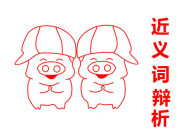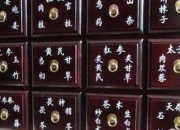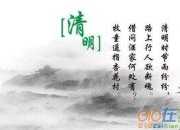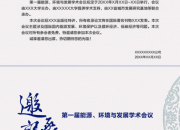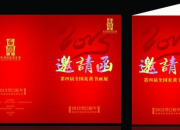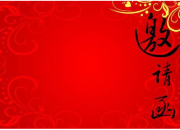四级翻译的试题参考
时间:2021-08-31四级翻译(9.16)
1.The heavy rain outside __________(使我不能专心完成任务).
2.In order to control the spreading of AIDS,we must __________(不惜一切代价加以预防).
3.___________(只要你继续努力工作),you will surely realize your dream sooner or later.
4.Please contact our customer services department if you _____________(对我们的产品有任何疑问).
5._______________(必须提醒人们注意防范)as the thunderstorm is coming.
答案解析:
1.distracts myself from fulfilling my assignment
“使不能专心”意即“使分心”,用distract sb.from sth./doing结构。“完成任务”可用finish assignment,也可用fulfill assignment表示,后者为四级常考词组。因为跟在介词from后面,所以把动词变为动名词fulfilling或finishing。“任务”还可以表达为task。
2.prevent this at all costs
“预防”的表达:prevent或guard against,用在must之后,不必变换形式。“不惜一切代价”的表达是at all costs或at all expenses。
3.As long as you keep on working hard
条件状语从句:as long as引导的条件状语从句通常用一般时。keep on意为“继续”,强调“坚持下去”的意思;“努力工作”可用work hard来表达,根据语法需要变为working hard。
4.have any doubts/questions about our products
if引导的条件状语从句:从句描述一般情况,用一般现在时。“对…有疑问”的表达:have doubts/questions about。
5. People have to be reminded of the prevention
表示“必须”的情态动词,一般用have to,表示主观不愿意被提醒;也可用must,表示愿意被提醒。people作为全句的主语,与“提醒”之间属被动关系,故用被动语态。“提醒”的固定表达为remind sb.of sth.。
“防范”即“预防”,用prevent的名词形式prevention。
英语
四级翻译(9.17)
1.____________________(无论别人怎么说),he held on to his beliefs.
2.You had better not disturb Mary as she ___________________(正专心于解一道难题).
3.The last survey shows that Chinese people tend to _________(消耗两倍多的盐)they actually need.
4.At the end of the opening ceremony,________________(大家期待你作简要的介绍).
5.The Committee made adequate preparations for the conference ____________(以便大会能顺利召开).
答案解析:
1.No matter what was said//Whatever was said
让步状语从句:no matter what/when/where/who/which/how结构可以引导让步状语结构,意思是“无论什么,无论何时,无论何处,无论谁,无论哪一个,无论如何”,分别等同于whatever/whenever/wherever/whoever/whichever/howver,句中“无论别人怎么说”,意即“无论别人说什么”,用no matter what或whatever引导。
从句中what/whatever作主语,与“说”直接属于被动关系,所以用被动语态。
2.is absored/involved in working on a puzzle
“专心于”的表达是be absorbed in或be involved in,后面需接名词性成分。work on的使用。Work on意为“从事,忙于”,根据语法需要变为working on。
3.consume twice more salt than
考查比较级:英语当中涉及到倍数的表达时,一般用“数词+名词+than”的结构表示。涉及到倍数的表达时,用once(一倍),twice(两倍),three times(三倍),以此类推。本题中所提示的“两倍多”,故不能少more。“消耗”的英文表达为consume。
4.you are expected to give/make a brief introduction
考查惯用句型:中文句子主语,谓语,宾语分别是:我们,期望,你。但在译文中,可以发现句子是以you开头,也就是说“你被期待作简要发言”。在很多情况下,当汉语句子以“我们”,“人们”,“大家”等泛指性代词作主语时,在翻译成英文常常可以忽略不译,通常处理成被动结构的you are expected/asked/hoped/desired/suggested to do,较接近英语的表达习惯。
考查固定表达:“作…介绍”的表达为give/make an introduction。
5.so that it would go on smoothly/successfully
结果状语从句:待译部分为主句的结果,用so that引导结果状语从句。待译部分所说动作还没有发生,主句用一般过去式,从句应用过去将来时结构“would+动词原形”。“召开”即“进行”,可用go on表达;“顺利地”意为“成功地,平稳地”,用smoothly或successfully均可。
英语
四级翻译(9.15)
1.___________(我本该将此事告诉他),but I was so focused on my experiment that I forgot.
2.These people did nothing _______________(除了整日在街上闲逛),which causes a lot of concern.
3.Now that you are planning to move to England,you must try to _________________(适应多变的气候).
4.Tom is an experienced businessman ____________(从事国际贸易)for nearly twenty years.
5._________________(既然你对唱歌那么有激情),I will treat you to KTV this afternoon.
答案解析:
1.I should have told him about this//I ought to have informed him of this
此处but引导的虚拟语气属暗含的虚拟语气,前一部分是虚拟语气,后一部分是陈述语气。由于后部分是过去式的陈述句,故前半句的虚拟语气用完成时态,表示“过去未做之事”,用“should/ought to have+过去分词”结构。
“将…告诉…”的表达是tell sb. about sth.或inform sb.of sth.。
2.except/but hang around on/in the street all day long
“除了”的表达是except或but,do nothing but/except后面用动词原形。But用于nobody,nothing,no one,all等词后面表示“除…以外”。“闲逛”译作hang around;“整日”的表达是all day long。
3.adapt to its changeable weather
adapt to 意思是“适合,适应”。“多变的”译作changeable。
4.who has engaged in international trade
考查定语从句:待译部分修饰businessman,应由who引导定语从句。由for nearly twenty years一词提示应用现在完成时。“从事”译为engaged in,为四级常考词汇;“国际贸易”的表达是international trade,也可以用foreign trade。
5.Now that you are so passionate fo singing
“既然”用now that或since表达,引导原因状语从句。“对…有激情”的表达是be passionate for或have passion for。指示代词:so用于形容词前,such用于名词前。
英语
四级翻译(9.14)
1._____________(正如食物能给身体提供营养),reading can enrich the mind .
2.Effective measures should be taken to _____________(降低不断增长的失业率).
3.__________(抱怨是没有意义的)since nothing can be changed.
4.After supper,I always feel like ___________(和露露在公园散步).
5.To such an extent _____________(西安的气温降低)that people all stayed home to keep warm.
答案解析:
1.Just as food provides nutrition for the body
比较状语从句:(just)as…意为“正如…”,表示同等程度的.比较。“给身体提供营养”还可以译为provides the body with nutrition.
2.decrease the rising unemployment rate
现在分词修饰名词结构:“不断增长的”可用rising或increasing来表达。“失业率”的表达应为unemployment rate或the rate of unemployment。
3.It's no sense(in) complaining//It's not sensible to complain
It is no sense(in)doing“做…是没有意义的”。“抱怨”用complain表达。
4.taking a walk in the park with Lulu
固定搭配:“想要做某事”的固定搭配为feel like doing sth.。“散步”的表达为take a walk,也可用go for a walk。
5.did the temperature in Xi'an go down
考查倒装:当so和such及其介词短语位于句首时,主句需要部分倒装,把助动词移至主语前。“降低”的表达为go down或decrease。时态一致:主从句的时态要一致,从句用过去时,故主句也用过去时。
英语
四级翻译(9.11)
1.You would have been better now if ___________(你过去坚持吃药).
2.In______________(鉴于他违背了妈妈的意愿),his father gave him a little hard work to do.
3.The police warned citizens against keeping a large sum of cash at home ____________(以防被盗).
4._____________(当谈及代购问题),all students are eager to say something about their experience.
5.It is common konwledge ____________(在经济上中国仅次于美国) at present.
答案解析:
1.you had kept taking/having this medicine before
考查虚拟语气:表示与过去事实相反的假设需用虚拟语气,从句中的谓语动词用“had+过去分词”,主句中的谓语动词用“should(第一人称)或would(第二,三人称)have+过去分词”。“坚持做某事”的表达是keep doing sth。
“吃药”的表达是take/have medicine。
2.view of his going against his mother's will
“鉴于”的表达是in view of,后面跟名词性成分。“违背”的表达是go against。“意愿”的表达为will。
3.lest it (should) be stolen//in case it (should)/will be stolen
考查目的状语从句:lest意思是“以防,以免”,其引导的从句通常用sb.(should)do 的形式表示虚拟,句中指“钱财被盗”,用被动语态。In case “以防”也可以引导目的状语从句,但从句的谓语可用虚拟语气,也可用直陈语气。
考查代词it:从句中的“以防被盗”指cash,为了避免重复,用it指代。
4.When it comes to generation gap//When talking about generation gap
考查“当谈及…”这一常考固定结构:when it comes to+sb./sth或者when talking about +sb./sth.。“代沟”的表达:generation gap。
5.that China is next to America in terms of economy
that引导的主语从句既可放于句首,也可放在句末,但为了保持句子平衡,常用it作形式主语,把真正的主语从句放在句后。“仅次于”的表达为be next/second to。“在…上”可表达为in terms of或者直接用介词in。
英语
四级翻译(9.10)
1.By the end of this year ___________(这本书将出版).
2.That advantages of bicycle outweigh its disadvantages and it will ________________(在现代社会发挥重要作用).
3.After days of heavy rains,the sun ______________(终于从云层后面露出来了).
4.He has got into the habit of __________________(在房间乱扔东西).
5.______(凡是对油画感兴趣的人)may get a free ticket to the art show.
答案解析:
1.the book will have been published // the book will have come out
考查时态和被动语态:由by the end of this year“今年年底”判断要用将来完成时,而book与publish之间是被动关系,所以用将来完成时的被动语态will have been published。如果用come out 表达的话不必用被动式。
“出版”的表达常用publish或come out。
2.play an important/essential role in modern society
“发挥作用”的表达为play a role in。“重要的”表达可以用important或essential;“现代社会”的表达为modern society。
3.emerged from behind the clouds at last
为了准确表达方位,from后面可接另外一个介词宾语,behind the clouds整体表示一个位置;云层后面。本句叙述的是过去的事情,所以用过去式。“露出来”的表达为emerge或come out。
4.答案:leaving things about/everywhere in his room
“养成某习惯”的固定搭配为get into the habit of doing sth。“乱扔东西”的表达为leave things about/everywhere。
5.Whoever is interested in oil painting
考查主语从句:Whoever意思是“无论是谁”,它在引导的主语从句中可作主语或宾语。作主语时,谓语动词一般用单数。“对…感兴趣”的表达是be interested in或have/take an interest in。
“油画”的表达是oil painting。
【四级翻译的试题参考】相关文章:
1.四级翻译的试题
2.四级口语试题
